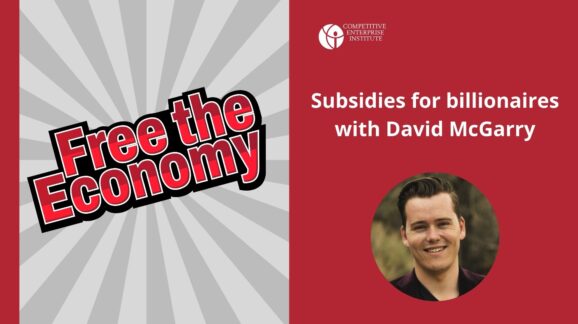There are two main areas in which Congress can enact meaningful reform. The first is to rein in regulatory guidance documents, which we refer to as “regulatory dark matter,” whereby agencies regulate through Federal Register notices, guidance documents, and other means outside standard rulemaking procedure. The second is to enact a series of reforms to increase agency transparency and accountability of all regulation and guidance. These include annual regulatory report cards for rulemaking agencies and regulatory cost estimates from the Office of Management and Budget for more than just a small subset of rules.
In 2019, President Trump signed two executive orders aimed at stopping the practice of agencies using guidance documents to effectively implement policy without going through the legally required notice and comment process.
Featured Posts

Blog
The week in regulations: Bird hunting and food coloring
The Federal Register’s website became less transparent about rule counts and other data. President Trump threatened to send the military into a third city. The…

Blog
Free the Economy podcast: Subsidies for billionaires with David McGarry
In this week’s episode we cover White House intervention in corporate ownership, the nation’s falling economic freedom ranking, and welcome new…

News Release
Federal appeals court rules on NLRB unconstitutionality
The 5th Circuit Court of Appeals today issued a ruling suggesting the structure of the federal government’s top labor dispute regulator, the National Labor Relations…
Search Posts
Blog
President Obama Signs Dodd-Frank Financial “Reform” Bill: 2315 Pages of Special-Interest Payoffs
President Obama today signed into law the Dodd-Frank financial “reform” bill, the “most sweeping overhaul of U.S. financial market regulations since the Great Depression.”…
Blog
Phony “Toyota deaths database.” My article in Forbes magazine
In the Toyota witch hunt, nothing has been more damning than those deaths we’re told Toyota sudden acceleration “allegedly caused” or, depending on whom you…
Newsletter
Elena Kagan’s Nomination, Obama Signs Financial Regulation Bill and Defending the Right to Work
The Senate Judiciary Committee approves the nomination of Elena Kagan to the U.S. Supreme Court. Today President Obama will sign recently-passed financial regulation bill into…
Op-Eds
Obama’s Latest Monstrosity
The 2,315 page Dodd-Frank financial regulation bill that President Obama will sign today should not be called “financial reform.” Instead the bill, which…
News Release
Lift Government Barriers to Encourage Competition and Innovation
Washington, D.C., July 21, 2010—Tomorrow the Senate Commerce Committee will mark up the “America COMPETES Act,” possibly adding an amendment that would create a 15-member…
News Release
Extending Unemployment Benefits Will Increase Unemployment, Hurt Economy
Washington, D.C., July 21, 2010—The Senate today approved an extension of federal unemployment benefits to a maximum of 99 weeks. This move is likely to…
Staff & Scholars

Clyde Wayne Crews
Fred L. Smith Fellow in Regulatory Studies
- Business and Government
- Consumer Freedom
- Deregulation

Ryan Young
Senior Economist
- Antitrust
- Business and Government
- Regulatory Reform

Fred L. Smith, Jr.
Founder; Chairman Emeritus
- Automobiles and Roads
- Aviation
- Business and Government

Sam Kazman
Counsel Emeritus
- Antitrust
- Automobiles and Roads
- Banking and Finance

Marlo Lewis, Jr.
Senior Fellow
- Climate
- Energy
- Energy and Environment